Wim Wenders’ latest narrative film Perfect Days might seem an uncommonly mellow work by the maker of Alice in the Cities (1974), The American Friend (1977), Paris, Texas (1984), and Wings of Desire (1987), but it still finds the 78-year-old German director in existentially questing mode.
The Oscar-nominated drama, Wenders' biggest box-office success, takes its title from Lou Reed’s “Perfect Day” and its Zen-like serenity from its protagonist Hirayama (affectingly played by Kōji Yakusho). A kind-hearted, middle-aged bachelor, Hirayama is employed as a cleaner of the architecturally diverse, state-of-the-art public toilets in Tokyo’s Shibuya ward. He happily adheres to his ritualistic daily routine and takes pride in his immaculate work – unlike his frequently late and noisy young assistant, Takashi (Tokio Emoto). (Pictured below: Wim Wenders)
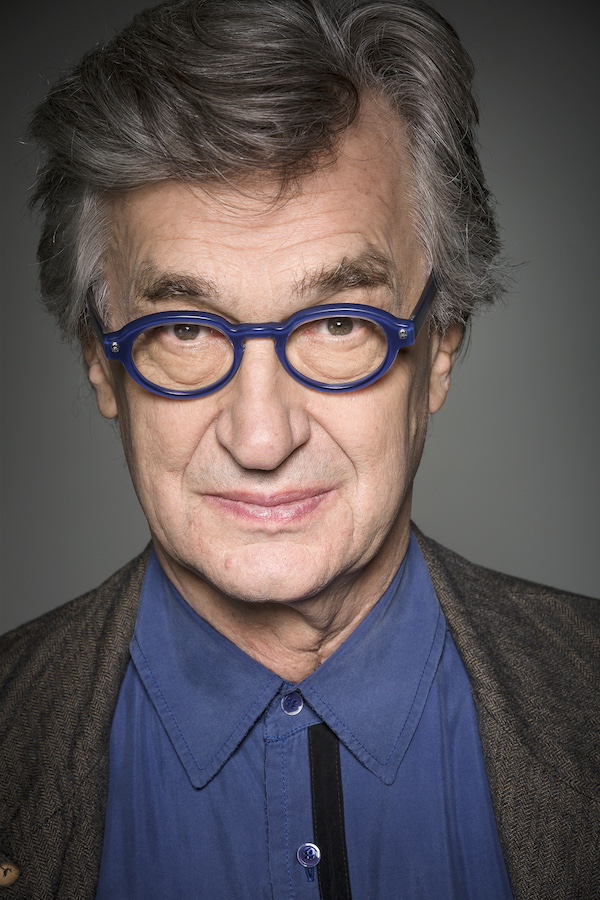 Hirayama gets pleasure from music (not only Lou Reed and the Velvet Underground, but Patti Smith, the Animals, Otis Redding, and more) that he listens to on his old cassette tapes, cycling the city and taking photos, glimpses of nature, and reading classic modern novels by the likes of William Faulkner and Patricia Highsmith.
Hirayama gets pleasure from music (not only Lou Reed and the Velvet Underground, but Patti Smith, the Animals, Otis Redding, and more) that he listens to on his old cassette tapes, cycling the city and taking photos, glimpses of nature, and reading classic modern novels by the likes of William Faulkner and Patricia Highsmith.
Pre-recorded cassettes are coveted by Tokyo collectors and the cash-strapped Takashi, hoping for a commission, suggests to Hirayama that he sell them. That would be sacrilegious, of course. Instead, Hirayama gives Takashi money so he can take out his girl, the enigmatic club hostess Aya (played by dancer Aoi Yamada).
When Aya returns to Hirayama a Patti Smith cassette – smuggled from his car in her purse by Takashi so he could check on its value – she lets him know with unexpected tenderness how much the music means to her, too.
Though Hirayama's days are perfect in their simplicity, the film raises doubts about his solitariness and about life choices that might have been forced upon him, which is where the existentialism comes in. Hirayama has a fractured relationship with his sister Keiko (Yumi Asō) – a wealthy snob who deplores his profession and stops him bonding with her runaway daughter, Niko (Arisa Nakano), Hirayama's grown niece, by coming to retrieve the girl in her chauffered car. It emerges that Hirayama is estranged from their ailing father.
Hirayama also carries a torch for the woman (Sayuri Ishikawa) who runs the restaurant he frequents. On seeing her in the arms of another man, he responds in a troubling way that couldn’t have been anticipated from someone so self-contained.
Hirayama’s subsequent encounter with the man reveals the depth of his compassion. The depth of his pain is imponderable. Perhaps his isolation is not so splendid. But on he goes, with a smile for the morning and the Kinks and Nina Simone for company, knowing they'll never let him down.
I asked Wenders the following questions about Perfect Days at the end of a longer Zoom interview on Anselm, his masterful recent 3D documentary on the artist Anselm Kiefer.
GRAHAM FULLER: The toilets Hirayama cleans in Perfect Days are among the 17 designed and built for Koji Yanai's Tokyo Toilet Project. Why did Koji invite you to participate in the project?
WIM WENDERS: He knew I love Tokyo and like architecture. He had the idea that I could make a series of little documentaries about these great architects who usually build stadiums, banks, and museums, and now had each built something as tiny as a public toilet as a social project. After coming to Tokyo to look at these little buildings, I felt there was a bigger story to be told about the sense of common good that I feel is so present in Tokyo. I was very frank about the initial idea. I said, “I'm not the right guy. Koji, to make documentaries about the creation of these toilets, but I’d love to make [a film] in which they’re not the subject but play an important part.”
Koji graciously said, “If you think you can tell a story in such a short time” – he had carved out four days for filming – ”let's try it.” I went home to Berlin and wrote the script with [screenwriter-producer] Takuma Takasaki, because I couldn't write a story about a Japanese man alone. We wrote it in three weeks and found the perfect actor, Kôji Yakusho (pictured below), to play our toilet cleaner.
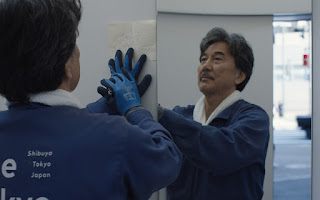 Did you meet any real toilet cleaners?
Did you meet any real toilet cleaners?
Oh, yes. But before I met them just before the shoot, I found out that Kôji Yakusho had spent a week on the same tour with them that he does in the movie, and that he knew every trick of the trade.
Was [filmmaker] Yasujirō Ozu your guardian angel on Perfect Days?
It was made very much in the spirit of his films. They have a transcendental style and, for me, still represent the most beautiful part of film history, almost its sacred treasure. Ozu has been my true master ever since I got to know his work. I’d made a number of films before I ever got to see a single film of his. But once I knew them, they became my greatest inspiration. I made this film 60 years after his death, and it is made in his memory. Our toilet cleaner is called Hirayama because that's the name of the old man played by Chishū Ryū in Ozu’s Tokyo Story [1953].
Hirayama’s composure and love of analog music and photography in Perfect Days suggest he’s an alter ego for you, like the characters Rudiger Vogler once played in your films. He takes pleasure in seeing light filtering through the trees in the little park where he stops for lunch each day. It reminds me of your wife [Donata Wenders] remarking [in the 2007 documentary One Who Set Forth: Wim Wenders’ Early Years] how you like urban environments, because you grew up in them, but are happy to find a patch of green.
If anything, Hirayama's more like my two guardian angels in Wings of Desire. I did invest a lot of my dreams into him and gave him some of the things that I treasure the most – music and photography and books. He uses them all and enjoys them, but in a way I feel our culture is unable to anymore because we have too much of them. He represents the pure love of these things and the pure love of light and shadows. He loves people and doing this work that is clearly serving others, not himself. And he lives like a monk, very much as Ozu did. I feel that he's not so much my alter ego as a man who represents a utopian human figure at a time when the sense of the common good is so deeply endangered. (Pictured below: Tokio Emoto, Kôji Yakusho, Aoi Yamada)
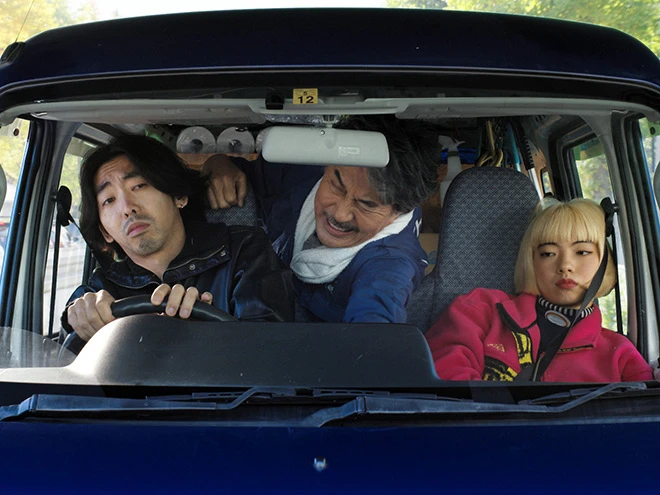 I was struck by Hirayama’s pride in his work and his generosity, humility, and dignity, which shows up the class snobbery of his sister. He answers a question you've asked throughout your films about how we’re meant to live in the world.
I was struck by Hirayama’s pride in his work and his generosity, humility, and dignity, which shows up the class snobbery of his sister. He answers a question you've asked throughout your films about how we’re meant to live in the world.
I was very aware that this was my first post-pandemic film, and I wanted it to ask how we continue. Is it business as usual or have we learned something? Hirayama shows we have to be more aware that we live with and for others. Yes, he lives in solitude, but it's a contented solitude. He doesn't live his loneliness as suffering. He lives it as something that enables him to be fully out there at the same time, to meet people, and do the work he does with the same ethics that you find in Japanese crafts people.
In our culture, crafts people are sometimes at the lower end of the social ladder, but in Japan they're revered. Like other people who make something simple with wood or earth by hand, Hirayama works with the same dedication and aspiration for perfection. If more people lived like him, we would have a much better planet.
The film made me dig out my old music cassette tapes.
You'd be a rich man in Tokyo! [laughs]. These vintage cassettes are worth a fortune. It's not fiction that a whole young generation in Tokyo rediscovered the analog medium of audio cassettes because they realise they can do something so precious with them. They can do compilation tapes – and compilation tapes are the opposite of playlists. Playlists are... well, we've become our own algorithms. But making compilation tapes is a form of storytelling with a beginning and an end, and they are real personal messages. (Pictured below: Kôji Yakusho)
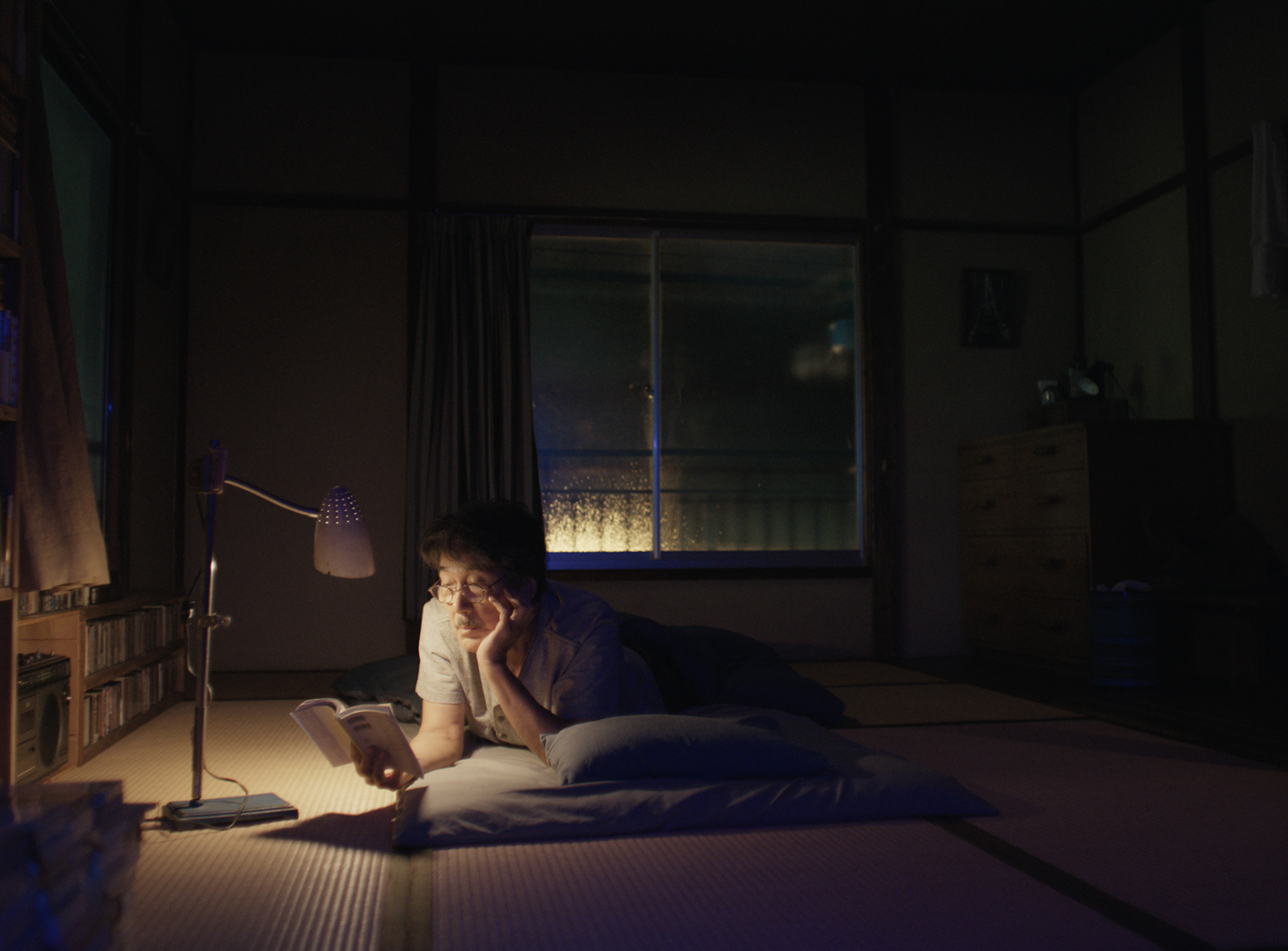 I know you've had some health issues with your sight. Will you be able to carry on making films?
I know you've had some health issues with your sight. Will you be able to carry on making films?
Yep. The operation went really well. I see again with my right eye. It was a hard moment in my life, but the problem's fixed. And I can even shoot in 3D again, which you need both eyes for.
Do you know what you're going to do next?
I'm working on a film on the Swiss architect Peter Zumthor, who at the moment is building the LACMA [Los Angeles County Museum of Art], which is going to show the future of museums. He hasn't built much, but he still won the Pritzker Prize. Every other architect says, "In another life, I want to be Peter Zumthor," because he builds very little, but what he builds is really amazing.

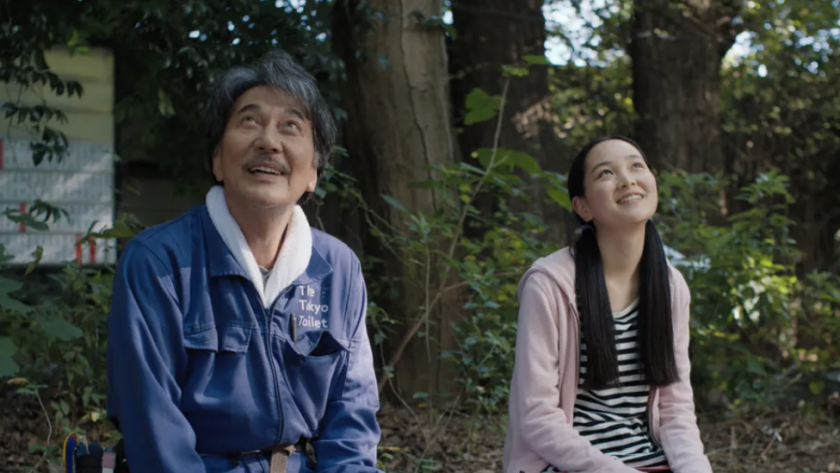













Add comment